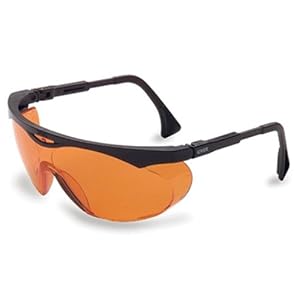I am writing this post at 2:20 AM.
Why, you may ask, am I qualified to give advice on improving sleep?
For the past 5-1/2 years I was unable to fall asleep at the same time for more than a couple days in a row. Always shifting forward, some weeks I couldn't fall asleep till 6AM, and the next week 10AM, and the week after 2PM, and so forth. However, as of early this year, I can now maintain a regular bedtime indefinitely. What changed?
Achieving quality sleep at the right time has always been a battle for me. I have mild sleep apnea and a circadian rhythm disorder: Non-24 Hour Sleep-Wake Syndrome (think severe, advancing, chronic jet-lag). Improving my dysautonomia symptoms was difficult when I couldn't even get a regular night of sleep. Despite countless attempts to improve the situation, I've slept away many days and weeks in total frustration, missing important events, only to feel sicker, defeated, and out of options. But this year, I've finally discovered a safe and medication-free way to help me sleep on a regular schedule.
Call now for this special offer and get the bonus gift free! Just kidding.
No, this isn't an infomercial, and what I'm going to share isn't a miracle cure, but it has improved my quality of life and stopped my sleep from cycling around the clock every month. Best of all - no pills!
The treatment is a pair of blue-block glasses. Before you think of the 80s commercial about amber shades making the golf course look 'crystal clear,' let me share a little background:
 Melatonin is a substance produced naturally by the body to make you sleepy when it's dark. It is inhibited by light, particularly *blue* light, which is why people normally feel awake and alert during the day. Melatonin production can get disrupted in people with dysautonomia, fibromyalgia, CFS/ME, night-shift workers, nursing mothers, and people with sleep disorders. For some reason, the eyes don't respond to darkness cues properly or are exposed to excessive bright light at night, leaving us feeling revved up when the rest of the world is gearing down and exhausted when we should be refreshed.
Melatonin is a substance produced naturally by the body to make you sleepy when it's dark. It is inhibited by light, particularly *blue* light, which is why people normally feel awake and alert during the day. Melatonin production can get disrupted in people with dysautonomia, fibromyalgia, CFS/ME, night-shift workers, nursing mothers, and people with sleep disorders. For some reason, the eyes don't respond to darkness cues properly or are exposed to excessive bright light at night, leaving us feeling revved up when the rest of the world is gearing down and exhausted when we should be refreshed.What blue-block glasses do is protect the eyes from perceiving blue light. Worn only for a couple hours before bed, these glasses allow the body to produce more melatonin naturally, even in well-lit areas. I can wear them while watching TV, reading, using the computer, and all the while, my body is essentially fooled into thinking I am in total darkness. Not to be confused with regular sunglasses (which I tried and don't work!), these lenses are specifically designed filters that block out virtually all blue light involved in disrupting melatonin.
The effect has been remarkable for me. When it's time to fall asleep, I can drift off naturally and wake up at approximately the same time. No more drastically shifting bedtimes or widely varying wake times.
Additionally, I discovered the benefit of using blue-block light bulbs in the bedroom. These bulbs (which produce a pleasant yellow glow) can be used in place of the blue-block glasses in an otherwise dark room. Candlelight has been said to work too. The site I linked to also offers computer and TV blue-light filters as well as night-lights. The home page (lowbluelights.com) offers help on why and how to use these products most effectively.
From my experience, blue-block glasses at night are a great way to naturally wind down before bedtime without drugs or supplements. They help me to feel relaxed. Though not the cure for all sleep problems, they are well worth the effort if nothing else has worked for you or if you are seeking a drug-free way to improve your bedtime.
A few last words:
1. Be sure to read over basic "sleep hygiene" practices to use with the glasses for a better night's rest.
2. The Uvex brand (first link) is made with adjustable earpieces, which are not immediately obvious unless you know to push them in.
3. The LowBlueLights brand offer small sizes which are better for children and petite adults.
4. The glasses are not what I would call stylish, but if you are desperate for an earlier, regular bedtime without depending on pills, these might be worth a try.
They have certainly made a difference for me.
No comments:
Post a Comment